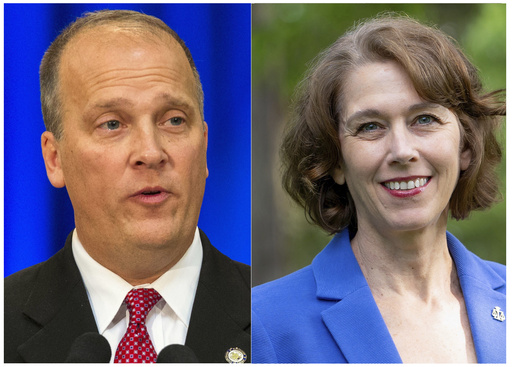
MADISON, Wis. — The upcoming state Supreme Court election in Wisconsin is already crucial, with the potential for majority control at stake. However, recent developments have raised the stakes even higher, particularly following a judge’s decision to reinstate collective bargaining rights for numerous public workers, including teachers. This ruling amplifies the significance of the contest scheduled for next spring.
The liberal-majority court has already made impactful decisions, having invalidated gerrymandered legislative maps drawn by Republicans. Furthermore, there are ongoing cases aimed at ensuring access to abortion within the state and countering Republican efforts to dismiss the state’s nonpartisan elections administrator. With these dynamics, the court may facilitate another significant victory for the Democrats, aligning its decisions with public education employees and government workers by restoring rights they lost over a decade ago.
The public backlash against the loss of collective bargaining rights, which spearheaded notable protests years ago and invigorated Republican-led movements that limited private-sector union rights, cannot be understated. The 2023 election granted liberals control of the Wisconsin Supreme Court for the first time in 15 years, marked by unprecedented engagement from both political sides, record voter turnout, and historic financial input for a judicial race.
Abortion rights had a prominent role during that contest, but as the date for a new election approaches, it seems that union rights could become a pivotal issue in the 2025 elections, particularly to fill the seat of a departing liberal justice. Rick Esenberg, head of the conservative Wisconsin Institute for Law and Liberty, emphasized the critical nature of this election, suggesting its importance may rival that of legislative and gubernatorial races.
The election on April 1 will feature Judge Brad Schimel, a Republican and supporter of President-elect Donald Trump, who previously served as Wisconsin’s attorney general, against liberal Judge Susan Crawford. Crawford’s former law firm had represented teachers in efforts to contest the state’s anti-collective bargaining law.
In 2014, the then-conservative-led Wisconsin Supreme Court upheld Act 10, the law at the center of the ongoing dispute. Schimel claimed that Crawford’s history with attempts to reverse Act 10 raises doubts about her impartiality. Conversely, he faced questions regarding his own previous positions defending the law, particularly concerning its exemptions for police and firefighter unions.
Recently, the Dane County Circuit Court judge ruled that unequal treatment of public safety workers under the law was unconstitutional, siding with the teachers in his verdict. This ruling was immediately appealed by the Republican-controlled legislature. As the situation currently stands, neither candidate addressed inquiries regarding their potential recusal should the case related to Act 10 reach the court.
Typically, appeals on circuit court decisions are processed through state appeals courts, a procedure that can extend over several months. However, plaintiffs wishing to expedite the matter can request a direct review by the state Supreme Court, which might create the opportunity for a verdict before the new justice takes office in August.
Crawford has secured endorsements from the Wisconsin Education Association Council, the state Democratic Party, and all four liberal justices currently on the Supreme Court. Her previous legal work included representing Planned Parenthood in efforts to enhance abortion access in Wisconsin.
Christina Brey, spokesperson for the teachers’ union, expressed confidence in Crawford’s ability to serve as an impartial judge. In contrast, Schimel has garnered support from Republican leaders and law enforcement bodies, including endorsements from Senator Ron Johnson, all Republican Congress members from the state, and numerous county sheriffs.
If Crawford emerges victorious, liberal control of the court will be assured until at least 2028, which is when the next liberal judge will face re-election. Candidates still have until January 1 to enter the race for the April 1 election, with the winning candidate committing to a decade-long term.
